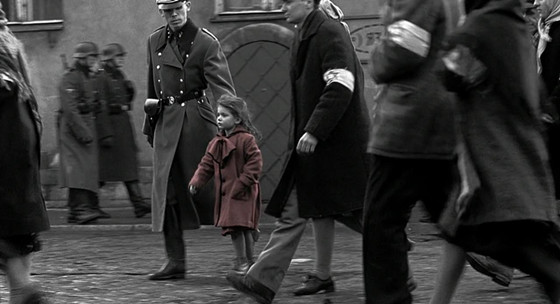
With over $4 billion in theatrical box office returns alone, Steven Spielberg is one of the most successful–and influential–directors of all time. His work has spanned genres from historical drama to action-adventure to fantasy and science fiction, and more often than not he has created imperishable, popular works of art.
The Spielberg style has become so recognizable and ubiquitous that a term has been created to describe it: Spielbergian. Some signature touches of his directorial style include tracking shots, frames-within-frames, dramatic slow-zoom closeup reaction shots, shooting from a low angle, and iconographic framing of characters. In a word, Spielberg’s style is epic in its active engagement of its subject and frames its characters as alternately everyday and heroic.
So far in his career, Spielberg has directed 29 feature films, and while many of them are very good (and some of them are eternal classics), there are some that fall short of the (admittedly difficult-to-match) high standards that he has set for himself.
Although Spielberg is inarguably one of the greatest directors the art form has ever seen, not all of his films are great–and some of them are kind of terrible, truth be told. But please keep in mind that even a middling Spielberg film would be considered a career highlight for most directors–it’s just that he’s such a great director that when he falls short of his astonishing abilities, it can be a little disappointing.
30. 1941 (1979)
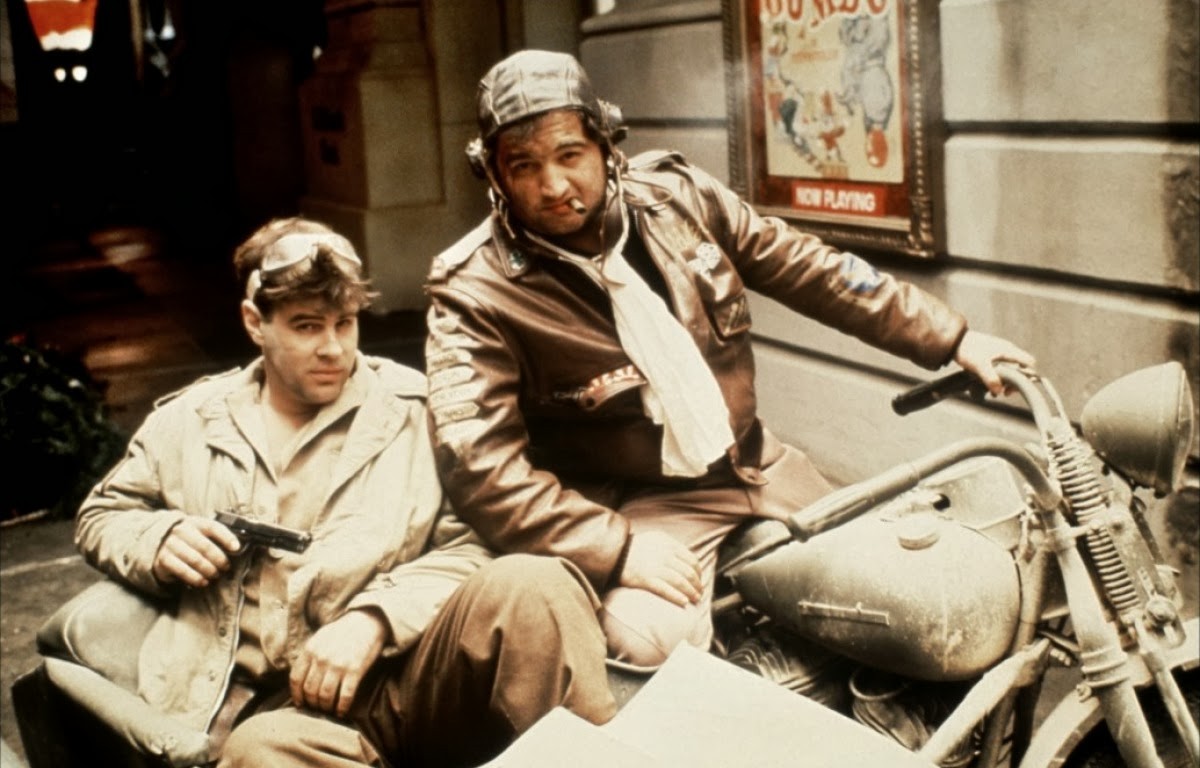
After an impressive debut feature and two certified smash hits, including the first bona fide blockbuster Jaws, Steven Spielberg could do any project he pleased. Why he would choose the dire comedy 1941 is beyond all reasoning: maybe it was hubris, or maybe he figured with the assembled talent and cast, he just assumed that he could do for comedy what he accomplished in the thriller and science fiction genres, which is make one of the most successful movies of all time.
Instead, 1941 was released to scathing reviews and an indifferent box office return. Taking place in 1941 (get it?) California shortly after the Pearl Harbor bombing, this movie details the collective public freak-out when both citizens and army alike think Japanese forces are attacking the state.
It’s a witless film that comes across like a movie made by somebody who thinks they’re really funny but have never made anyone laugh before in their life. Between the groan-inducing double entendres, wooden performances, and relatively offensive portrayal of Americans as paranoid idiots during the beginning of the country’s entry into World War II, there’s little to enjoy in the film. The two bright spots are John Williams’ impeccable score and John Belushi as the completely unhinged Captain Wild Bill Kelso, and that’s pretty much it.
Outside of those elements, it’s an abysmal “comedy” that only carries a morbid fascination for fans of one of cinema’s most acclaimed directors falling flat on his face and following his worst instincts. Apparently it’s gained a cult following of some sort, but it must be of the camp variety since there’s little else to recommend here.
29. The Terminal (2004)
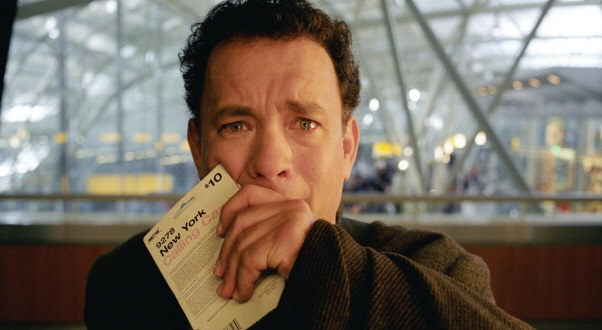
Tom Hanks is one of the most beloved cinema stars of all time, and Spielberg is one of Hollywood’s most popular directors: they’ve collaborated to great success before, so if you put them together you can expect great things to come from it. However, The Terminal proved this formula’s success wrong in this stumble from the director, who managed to drag Hanks into this tepid film.
A foreigner is trapped at JFK Memorial airport terminal after being denied entry into the US and unable to return home due to a military coup in which his country ceased to exist. While this premise sounds amusing, it’s important to remember that Spielberg–while able to create funny moments in his work–is not a natural comedy director. Unfortunately, to successfully extend this slight premise over a feature-length film, you would need a master of comedy to put it together.
Instead, the audience is treated to Hanks playing befuddled foreigner Viktor who, trapped in the terminal, befriends its employees and assists passengers while also falling for a flight attendant.
There are two problems with the film: one is the supposed charm that the audience should feel for Viktor, who–while a good-natured character–is two-dimensional and doesn’t provide much to the audience to feel about one way or the other. The second is the paradoxically formulaic and absurdly cinematic contrivances that the plot’s engine runs on: both the ultimate purpose of Viktor’s trip and the machinations that allow the culmination of the plot are preposterous, cloying fantasies that frankly insult the viewer’s intelligence.
And while ably directed by Spielberg, it’s a weirdly small story for a director with such ability to tackle. Perhaps he wanted to coast for a while and make an easier film, but in the process he made one of his worst in the process. Speaking of coasting and making one of his worst films…
28. Indiana Jones and the Kingdom of the Crystal Skull (2008)
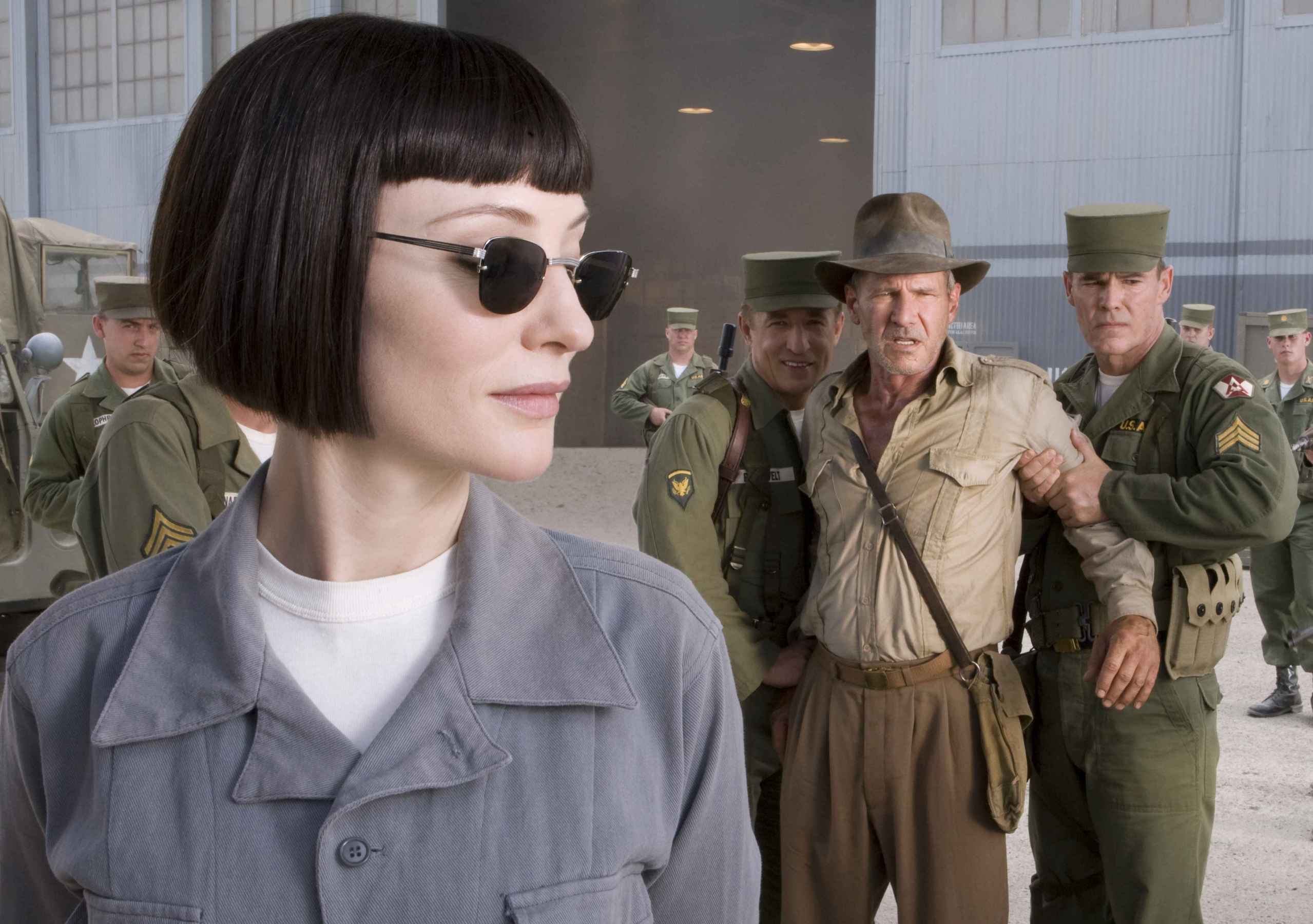
There’s very little criticism that hasn’t already been said about the deficiencies of Indiana Jones and the Kingdom of the Crystal Skull at this point: reviled by the online community upon its release, this latest Indiana Jones adventure was taken as a slap in the face to all that fans of this famed adventure series held near and dear of both the character and franchise alike.
So here’s a quick bashing of what’s wrong with the movie: Jones protected by a refrigerator at ground zero of a nuclear explosion; the disastrous character of Mutt, played like a tool by Shia Labeouf, who ends up being Indie’s long-lost son; a Soviet-era enemy that for some reason echoes Nazi goals and sentiments; the alien plot in general; bad CGI effects; and Jones himself at first seeming old and tired (which would have been an interesting turn for the character) but suddenly becoming an action star once again when the plot eventually kicks in. Simply put: if you’re a die-hard Indiana Jones fan, there’s a lot to dislike about this movie.
Maybe what’s more insulting is that the parts of the film that aren’t completely off-model are empty fan service moments: Karen Allen’s Marion Ravenwood returns as Indie’s one true love, which is a great addition but is never actually explored in meaningful way; many scenes and lines echo earlier moments from previous films as fan service; and overall, Spielberg even seems more interested in paying tribute to his previous work in the franchise rather than creating an original, engaging adventure this time around.
It’s a controversial film at best and a much-hated entry in a beloved franchise at worst. It’s for these reasons that it is one of Spielberg’s lesser works, if only because he’s capable of so much more–and had previously achieved much more where Indiana Jones is concerned.
27. Bridge of Spies (2015)
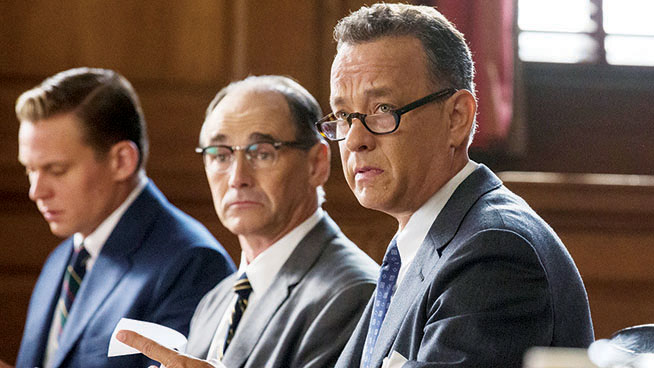
If you’re one of the world’s greatest directors, working with a perpetually popular actor, and shooting a script from the vaunted team of Joel and Ethan Coen, you would think something more interesting could come of it than a Cold War-era spy and legal thriller.
But with Bridge of Spies, that’s what was produced: based on true events, the film details the efforts of US lawyer James Donovan (played by Hanks) working on behalf of a captured USSR spy. While the spy is convicted, Donovan eventually negotiates for a trade with the Soviets for two US prisoners. And that’s pretty much it.
While a competent film (it received nearly universal acclaim and was a box office hit), it’s also a generic one that could have been made by any number of directors. As with many films that rank low on this list, it’s not necessarily because it’s a bad film but because it doesn’t live up to the incredibly high standards that Spielberg’s work has set.
26. The Lost World: Jurassic Park (1997)
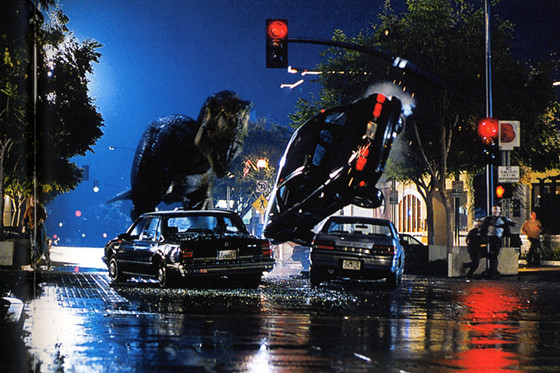
After directing one of his best films with the original, it’s unfortunate that Spielberg drew from the same well to create a sequel–not that he hasn’t had great success launching a franchise before (See: Jones, Indiana), but unfortunately the wheels seemed to come off of the concept this time around. Because in all of the ways the first Jurassic Park was a revelation, its sequel was more of a dour retread that hit the same notes but was unable to replicate the same sound.
Set four years after the events of the original, the film is set on an island nearby the original Jurassic Park where the dinosaurs were originally developed and have since have been roaming free; former park owner John Hammond’s nephew plans on capturing the dinosaurs and bringing them to the mainland, so he recruits Ian Malcolm (Jeff Goldblum), his girlfriend (Julianne Moore) and two other teammates to supposedly document the island, only to attempt to betray them for his own gain.
It’s…not great, and it pales in comparison to the much tighter and more focused original. Although the Jurassic series was successfully resurrected in 2015 with Jurassic World, it took this lame sequel and a much-discredited follow-up before the series went into slumber for over a decade.
And it’s a shame, since Spielberg could sense the franchise potential of the wildly successful original film, both with audiences and at the box office–earning nearly 1000 times its budget back –perhaps his commercial instincts led him astray here and he bit off more than he could chew with this limp follow-up to one of his best films.
25. Always (1989)
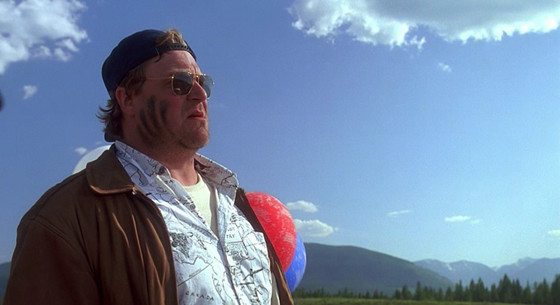
As a filmmaker, there are a lot of predilections that Spielberg has weaknesses for, and bathing his films awash with sentimentality is one of them. This is not necessarily a bad thing: when used to balance starker, more difficult material, it can be a great strength, but when this (admittedly attractive) instinct takes over, his films tend to come across as rather soft and pointless. Such is the case with 1989’s Always.
A loose remake of the World War II-era film A Guy Named Joe, Spielberg’s sentimentality for this era of American history–and the schmaltzy cinema that was produced during this time–seemed to have led him to distraction in this film.
The story: a pilot who uses a surplus A-26 bomber (because WWII fetishization is unavoidable to Spielberg) to combat forest fires dies heroically saving a co-worker during a run, only to come back as a heavenly designated figure to invisibly mentor a new pilot with both his job of fighting forest fires and woo his mouring girlfriend.
If this sounds like pure cheese, that’s not the half of it: the film is bathed in Spielbergian lights, giving every scene an ethereal glow, while the rather pointless story could only speak to the most soft-hearted and sentimental soul. Although finding enough success in the box office that one of the greatest popular directors of all time could muster out of sheer sentiment from audiences of his stature, Always is possibly the slightest work in Spielberg’s oeuvre.
24. Hook (1991)
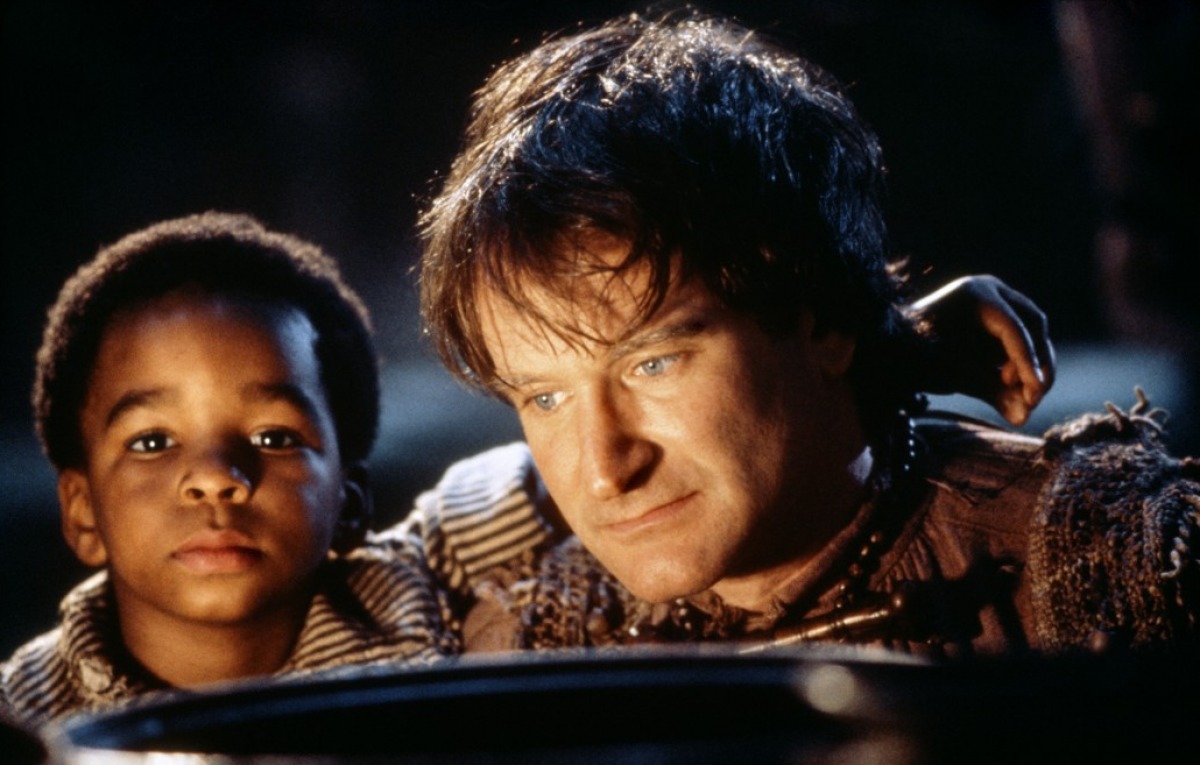
To a certain generation, Hook is one of their favorite films of all time, and the reason is simple: because they were 10 and under when they first saw it and subsequently have a powerful nostalgic attachment to it. But everyone over that age during its release have judged the film much more harshly, and for good reason: because it’s overblown, poorly constructed dreck.
A sequel of sorts to the classic children’s story Peter Pan, this live-action film follows Peter Banning (Robin Williams) as a grown-up Peter Pan who had been brought back to the real world and has since forgotten his boyhood adventures in Neverland. But when his children are kidnapped by Captain Hook (Dustin Hoffman), Banning returns to the fantasy world to rescue them, reclaiming his place as Peter Pan in the process.
Here’s where the film falls apart: the character of Peter Pan doesn’t really work as an adult because, you know, he’s an adult. So when he’s brought back to that setting as a middle-aged man–who’s seeking his abducted children, nonetheless–it’s not particularly charming when he begins to feel the stirrings of his youth and resurrects his belief in magic. Instead, it comes across like a man who’s gone off his medication.
All the powers of magical realism that Spielberg holds in his cinematic stable couldn’t make this already difficult premise work on screen–and while he tried his best, Hook never really gels as a movie. Critically lambasted but a box office success at the time, perhaps it takes the mind of a child to find the film more enjoyable than an interminable chore to watch.